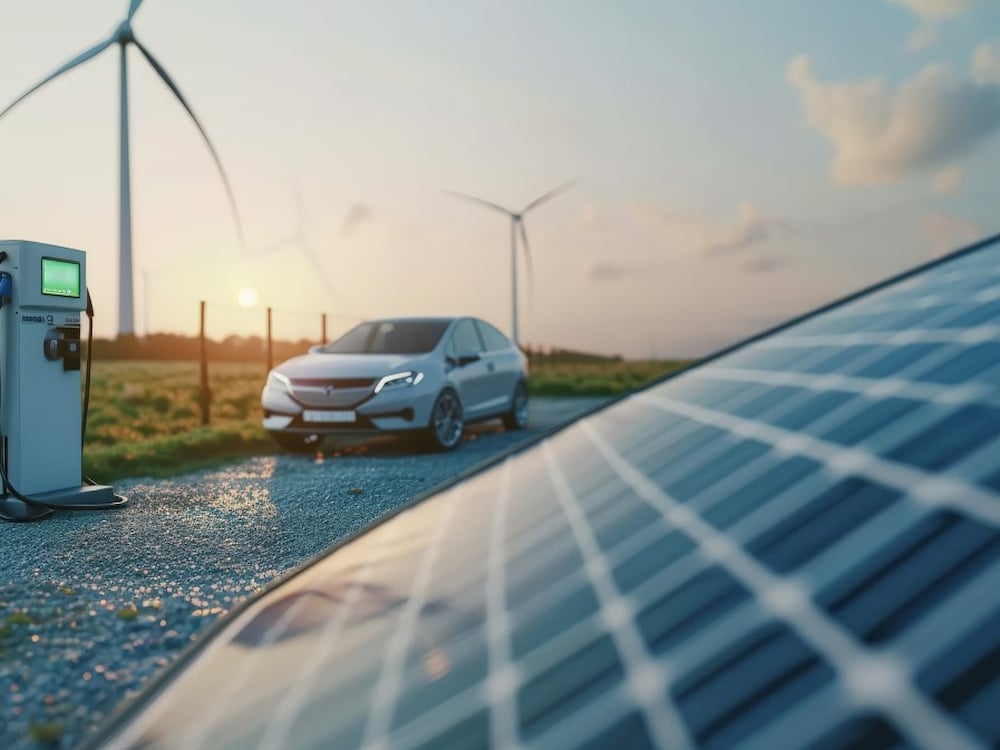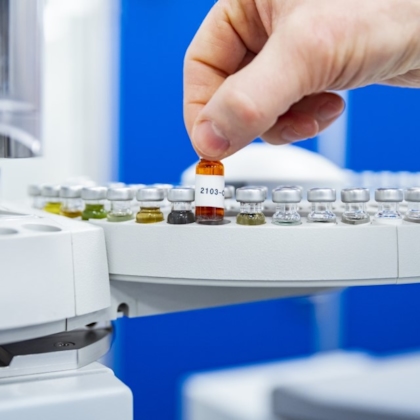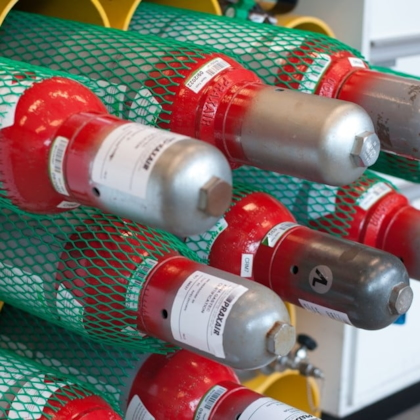Why hydrogen is essential in the energy transition
The energy transition involves significant changes: phasing out fossil fuels and switching to sustainable, clean energy sources. Hydrogen plays a key role in this shift. Although hydrogen has long been used in industrial processes, it is now gaining attention as a clean energy source. But why is hydrogen so vital in this transition? Let’s dive in.
Hydrogen in the mix of sustainable energy sources
In the energy transition, sustainable energy sources and carriers are increasingly used in combination. Solar and wind power probably come to mind first - and for good reason. These sources are renewable, clean and their technologies have become more affordable in recent years. However, there’s a catch: solar and wind energy depend on weather conditions, meaning they are not always available when needed. This is where hydrogen comes in.
Hydrogen can be used for energy storage. When there is a surplus of solar or wind energy, this excess can be converted into hydrogen through electrolysis. The hydrogen can later be converted back into electricity when demand exceeds the supply of solar and wind energy. This makes hydrogen a flexible complement to solar and wind power.
Energy storage in hydrogen and grid congestion
Another advantage of energy storage is its role in addressing grid congestion. In the Netherlands, the increasing use of solar and wind energy as replacements for fossil fuels is putting more strain on the electricity grid. The demand is so high that grid bottlenecks are becoming a common problem, leading to long waiting times for new connections. Storing energy as hydrogen helps ensure the reliability of the overall energy system.
Green hydrogen and decarbonisation
Hydrogen also plays a significant role in the energy transition due to the growing demand for decarbonisation. In many sectors, fully transitioning to electricity is challenging, if not impossible. Consider heavy industries such as steel production or the chemical sector.
These industries often rely on fossil fuels because of the high temperatures required in their processes. Hydrogen offers a cleaner alternative. Specifically, green hydrogen - produced using renewable electricity - can help these industries become more sustainable without requiring complete overhauls of their production processes.
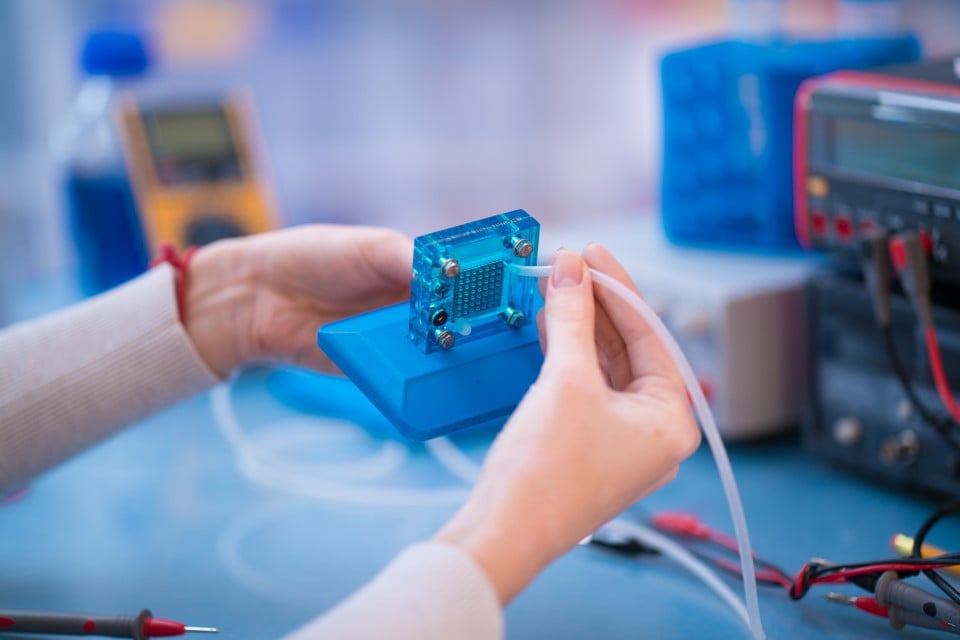
Adapting to hydrogen’s properties
Using hydrogen requires certain adjustments, as it has different properties compared to natural gas. When deciding whether and how to incorporate hydrogen into your organization’s sustainable energy mix, it’s essential to take these differences into account.
For example, converting industrial processes from natural gas to hydrogen impacts the materials, components and processes involved. This might include modifying gas burners to make them compatible with hydrogen.
Generating and storing hydrogen also involves specific considerations, such as odorization: adding a distinct scent to the otherwise odorless hydrogen for safety, similar to the odor added to natural gas.
Testing and research on hydrogen
At Kiwa’s advanced testing lab, we support decisions related to hydrogen with technical assistance, testing, inspection and certification for hydrogen solutions.
Decarbonisation Scan
Is your company ready to act? The Energy Scan provides insight into opportunities to streamline your energy consumption and transition to sustainable energy sources, helping your business achieve its climate goals.
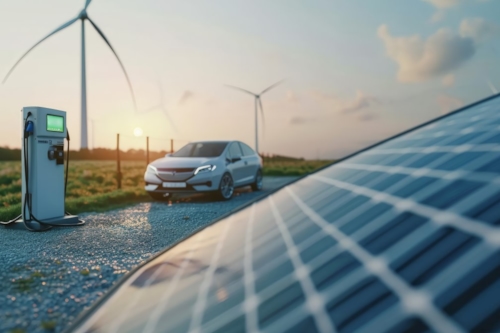
Pressure Equipment Directive Quality (PED)
Pressure Equipment Directive Quality certification with Kiwa: prove the safety and conformity of your pressure equipment, be ready for ISO 9001 and be competitive in the European market.
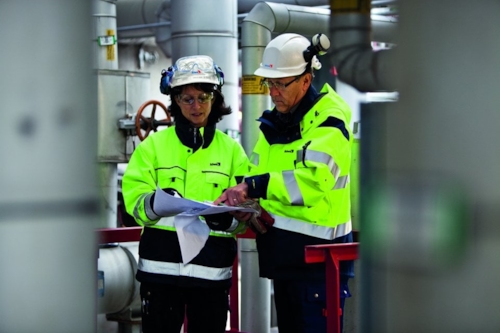
Gas analysis by ISO-certified laboratory
If your organization works with gases, it may be important to know their calorific value or Wobbe Index. In addition, it's crucial that the gas does not contain harmful trace components. At Kiwa, you can rely on expert analysis of a wide range of gas properties: volume, quality, (main) components, higher hydrocarbons, aromatic hydrocarbons, halogenated hydrocarbons, sulfur compounds (such as H₂S), siloxanes and THT odorization.
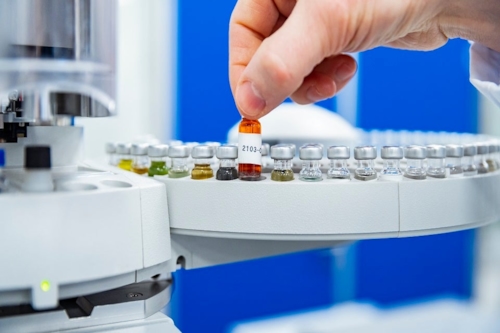
Hydrogen has the future: new approval requirement AR 214
Hydrogen is an interesting substitute to natural gas. Especially since research demonstrates that existing natural gas infrastructures can be made suitable for the distribution of hydrogen relatively easily. Kiwa anticipates with a new approval requirement (AR) 214 "Suitability for hydrogen gas".
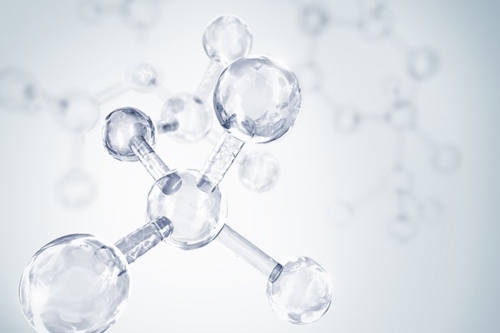
Hydrogen Embrittlement Testing according to ISO 11114-4 Method A – Disc Method
Hydrogen will play an important role in the automotive sector as an alternative fuel for vehicles. Hydrogen cars produce no CO₂ emissions, only water vapor, have a long range and can be refueled quickly. Manufacturers of hydrogen tanks and components are currently setting up mass production. For this purpose metallic materials have to be tested to demonstrate safe use with hydrogen.
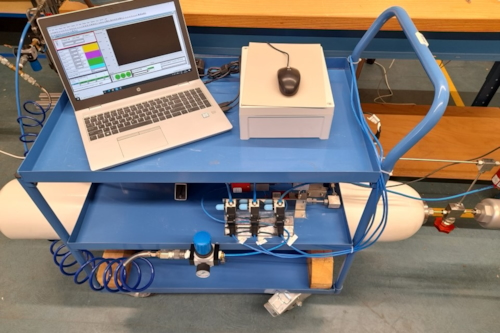
Analysis odorant in natural gas, hydrogen gas and other gases
Natural gas, hydrogen gas and many other gases are naturally odorless. This can cause dangerous situations, for example if a leak or other incident occurs. Gases that are distributed via the Dutch gas network must therefore be scented with a so-called odorant.
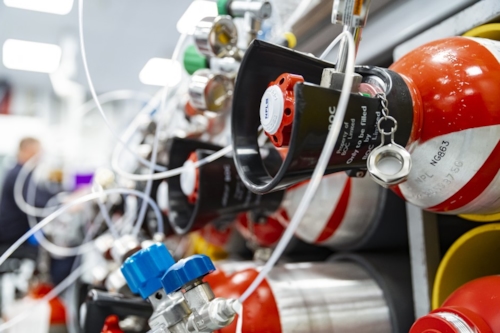
Testing of Gas Components for Vehicles
Kiwa offers testing and development services of automotive components for LPG, CNG, LNG and hydrogen, as well as cyclic and climatic tests. We mainly test pressurized components and electronics.

Feasibility Studies on Alternative Fuels
Kiwa Technology carries out feasibility studies to support gas traders, fleet owners and governments; to facilitate investment, safety, and provide an overview on the possibilities of alternative fuels CNG, LNG, H2 and CH2. To serve this objective, the study covers various aspects of the business concept development.

Network design
Network design for new areas or minor adjustments to existing networks is a determinant factor in the relationship between your investment costs and delivery reliability. You don't want to lay a large amount of pipeline capacity unnecessarily, but you do want to build in sufficient redundancy.
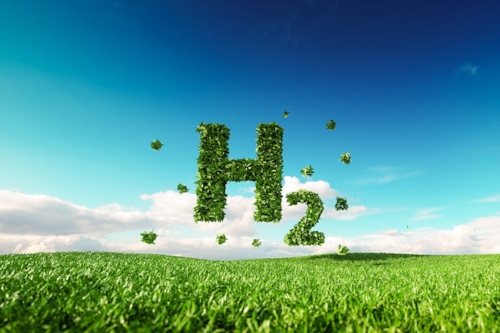
IRENE Pro Gas Pipeline Analysis Software
Irene Pro is a comprehensive and user-friendly analysis and calculation solution for gas networks. Developed by Kiwa, Irene Pro serves as an essential tool for numerous network operators in the construction, management and maintenance of gas networks.

Want to know more on the energy transition?
Our experts have deep knowledge and experience in specific fields. Questions, dilemmas or just curious?
